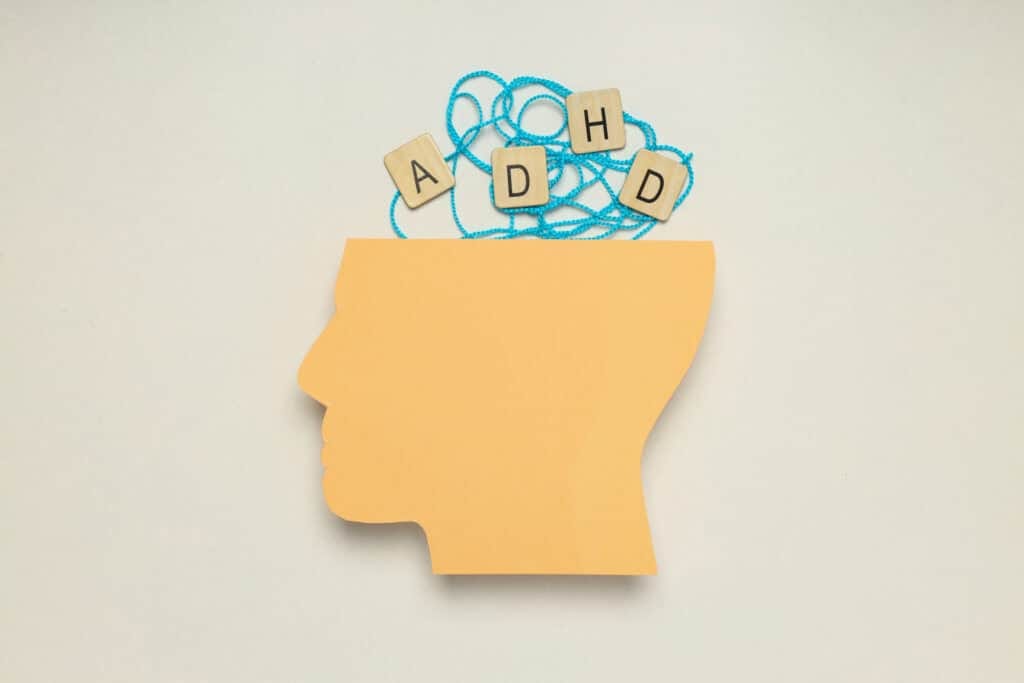If you’re like most people, your smartphone is never more than an arm’s reach away. You use it to stay connected with friends and family, to work, and to play games or watch videos.
But what happens when your dependence on your phone starts to interfere with your everyday life?
You may be suffering from smartphone addiction. This growing problem is characterized by an obsession with one’s phone, leading to negative consequences in different areas of life.
The Warning Signs of Smartphone Addiction
A few key signs that may indicate someone is addicted to their smartphone include:
- Checking the phone constantly, even when there is no notification or reason to do so.
- Feeling anxious or restless if they can’t access their phone.
- Using the phone in excess of what would be considered normal, such as spending hours on social media or gaming apps rather than completing work or engaging in face-to-face interactions with others.
- Letting personal hygiene suffer due to preoccupation with the device for example, not showering regularly because they’re too busy using their phone.
- Becoming easily agitated or angry if someone tries to take their phone away from them, or if they can’t get a signal or access to the internet.
- Losing interest in hobbies and activities that used to bring them joy because they would rather be on their phone instead.
- Continuing to use the device despite negative consequences such as job loss, financial problems, or strained relationships due to phone use.
If any of these sound familiar, addressing the issue with a digital detox and some better habits when using your phone is probably worth addressing.
The Causes of Smartphone Addiction
In today’s fast-paced digital world, smartphones have become nearly as vital as air and water. These pocket-sized powerhouses connect us with the world, entertain us, and simplify our lives. However, their ubiquity and our constant connectivity have also given rise to a new form of dependency—smartphone addiction. This phenomenon is not just about excessive smartphone use; it’s about the detrimental effects that this use has on our lives. To comprehend this problem, it’s crucial to delve into its root causes: the omnipresence of smartphones, the role of social media, and various psychological factors, including the Fear of Missing Out (FOMO).
The ubiquity of Smartphones and Constant Connectivity
The device’s omnipresence is the first significant cause of smartphone addiction. Smartphones are everywhere, offering constant connectivity that keeps us plugged into the world 24/7. This constant connectivity can blur the line between work and personal life, leading to a sense of being “always on” and creating a compulsion to check the device constantly. The ability to interact with friends, access information, shop, bank, and even control our homes from the palm of our hand has made it difficult for many to put the device down.
Social Media’s Role in Smartphone Addiction
The second cause of smartphone addiction is social media. Platforms like Facebook, Instagram, Twitter, and TikTok are designed to be addictive. They utilize algorithms that constantly show users content they are interested in, fostering an insatiable desire to scroll ‘just a bit more’. Social media’s like, share, and comment features also stimulate the brain’s reward center, triggering the release of dopamine, a neurotransmitter associated with pleasure. This creates a psychological high, leading to habitual and compulsive use of these platforms.
See also: Our guide to taking a dopamine detox.
The Role of FOMO and Other Psychological Factors
Lastly, several psychological factors contribute to smartphone addiction, the most notable of which is FOMO, or Fear of Missing Out. FOMO drives the desire to stay continually connected lest we miss out on something— a funny meme, a piece of breaking news, or a social event. This fear can lead to compulsive checking of smartphone notifications and social media feeds. Other psychological factors include the need for social approval, loneliness, and stress, all of which can perpetuate a cycle of excessive smartphone use.
In conclusion, smartphone addiction is a multifaceted issue stemming from the omnipresence of these devices, the addictiveness of social media, and various psychological factors. Understanding these causes is a crucial first step in addressing and managing this modern-day dependency.
Smartphone Addiction Among Teenagers and Adults
In the realm of smartphone addiction, it’s important to understand that the issue transcends age boundaries. While often associated with younger demographics, the reality is that this form of addiction impacts both teenagers and adults, albeit in different ways. Delving into the specifics of these two groups can provide valuable insights into the breadth and depth of this modern challenge.
Smartphone Addiction Among Teenagers
Smartphone addiction is a significant concern among teenagers, a generation that has grown up with these devices as an integral part of their lives. For many teenagers, smartphones are the primary means of social interaction. They use their devices to connect with friends, play games, and engage on social media platforms.
However, this constant connectivity comes with risks. Excessive smartphone use among teenagers can lead to problems like decreased academic performance, disturbed sleep, heightened anxiety, and even depression. Furthermore, teenagers’ brains are still developing, making them more susceptible to the dopamine-driven feedback loops created by apps and games designed to be as engaging as possible.
Smartphone Addiction Among Adults
On the other hand, adults are not immune to smartphone addiction. For many, smartphones are essential tools for work, news, and maintaining social connections. However, the constant availability of these devices can lead to the compulsive checking of emails, news, and social media, even when it interferes with work or quality time with family.
Moreover, adults may be more prone to experience “phantom vibration syndrome” – the false sensation that one’s phone is vibrating. They can also suffer from the physical effects of excessive smartphone use, including eye strain and “text neck,” a condition resulting from constantly looking down at a smartphone.
Differences and Similarities Between These Groups
While both groups can suffer from smartphone addiction, there are some differences. Teenagers are more likely to be influenced by social media and peer interactions, while adults may be more affected by work-related use and news consumption. Additionally, the effects of smartphone addiction can manifest differently, with teenagers experiencing more social and academic impacts and adults dealing with more work-life balance issues.
However, there are also striking similarities. Both groups can experience the mental health effects of smartphone addiction, such as increased stress and anxiety, and the physical effects of excessive screen time. Furthermore, both teenagers and adults can find it challenging to maintain a healthy balance of screen time, underscoring the pervasive nature of smartphone addiction.
Smartphone addiction is a pervasive issue that affects both teenagers and adults, highlighting the universal appeal and potential risks of these ubiquitous devices. As we continue to navigate our digital world, we must foster healthy habits and relationships with our devices, regardless of age.
The Benefits of Breaking Free from Smartphone Addiction
We all know the feeling. You’re out with friends or family, enjoying a meal or conversation, when you suddenly feel the urge to check your phone.
Even if you resist the temptation, your mind is still racing, thinking about all the notifications you might be missing. This is smartphone addiction – and it’s becoming increasingly common in our society.
Smartphone addiction can have serious consequences for our mental and physical health. It can lead to anxiety and depression symptoms, as well as sleep disorders like insomnia.
Checking our phones constantly also takes away from the time we could spend on more productive activities or simply relaxing and enjoying life. Fortunately, there are steps we can take to break free from this addictive behavior.
Here are some benefits of breaking free from smartphone addiction:
We Gain Back Time
One of the biggest complaints people have about smartphones is consuming too much time. A study by Deloitte found that Americans spend an average of 5 hours per day on their smartphones. That’s over 35 hours per week! If we cut down on our screen time, we would have more time for hobbies, exercise, socializing, and other activities that make us happy.
Improved Sleep Quality
Smartphones emit blue light, which has been shown to disrupt our natural sleep patterns. By using devices less before bedtime, we can improve our sleeping habits and get a better night’s rest.
Decreased Anxiety and Depression Symptoms
Constantly checking our phones can cause us unnecessary stress and anxiety. A study published in Computers in Human Behaviour found that participants who were asked to limit their smartphone use had lower levels of self-reported anxiousness than those who didn’t change their usage habits.
Better Focus
When we’re addicted to our phones, paying attention to tasks at hand becomes harder, whether working on a projector or conversing with someone else. However, if we cut down on our phone usage, we can train our brains to be more focused on other areas of life.
More Meaningful Conversations
One of the best things about breaking free from smartphone addiction is that it allows us to have more face-to-face interactions and deeper conversations with others. In a world where we’re constantly distracted by our devices, taking the time to connect with someone on a personal level can make a big impact.
If you’re struggling with smartphone addiction, know that you’re not alone. But also know that there are steps you can take to break free from this addictive behavior.
Prevention and Treatment of Smartphone Addiction
Just as with any form of addiction, prevention and treatment of smartphone addiction involve both self-help strategies and professional intervention. Additionally, technology itself can also play a role in mitigating the issue. Here we explore these different avenues toward healthier smartphone use.
Self-Help Methods
- Mindful Usage: The first step in self-help is becoming aware of your smartphone habits. Mindful usage involves paying attention to when, why, and how long you use your smartphone. It encourages you to be present and deliberate in your usage, resisting the urge to scroll through feeds mindlessly.
- Digital Detox: This involves taking scheduled breaks from your smartphone. A detox could be as short as an hour before bed or as long as a week-long holiday. These breaks can help reduce dependency on the device and create space for other activities that don’t involve screens.
- Setting Limits: Establish boundaries for your smartphone use. This could mean designating specific times for checking emails or social media, turning off unnecessary notifications, or even keeping your device out of your bedroom. By setting limits, you can regain control over your smartphone usage.
Professional Help
When self-help methods aren’t enough, professional help can be beneficial. Therapists and counselors trained in dealing with addictions can provide strategies and techniques to manage smartphone addiction. Cognitive-behavioral therapy (CBT), in particular, can be useful in changing patterns of thought that lead to compulsive behavior. Support groups can also provide a sense of community and shared strategies for dealing with smartphone addiction.
Apps and Tools to Help Combat Your Smartphone Addiction
Ironically, there are a number of digital tools that can help combat smartphone addiction. Using these tools, you can better understand your smartphone habits and enforce the boundaries you’ve set for yourself. Here are some of the best apps that we have found.
- AntiSocial: This app tracks your smartphone usage and blocks the apps you are most addicted to.
- StayFree: This app shows you how much time you spend on your smartphone and which apps you use the most.
- SelfControl: This app helps you block distracting websites and apps for a set period of time.
These apps can help you limit your smartphone exposure and live a healthier, more productive life.
Further Resources
The following resources can be useful in dealing with your smartphone addiction.
- HelpGuide.org: This website provides a detailed overview of smartphone addiction, including its causes and effects, signs and symptoms, and strategies for modifying smartphone use. They also offer some self-help tips and discuss various treatment options. It’s a good starting point to understand the problem and find initial solutions1.
- WebMD: This is another resource that gives a general overview of smartphone addiction. It explains smartphone addiction, how to identify it, and the health problems it can cause. It also provides steps to help manage smartphone addiction.
- PsychGuides.com: This website provides information on how to treat smartphone addiction, including therapy and counseling options, support groups, and hotlines.
- Addiction Center: This site offers a comprehensive guide on smartphone addiction, including the causes, symptoms, and effects. It also provides treatment options and resources for seeking help.
- Healthline: Healthline provides a number of articles on smartphone addiction, including tips for balancing screen time and real life and ways to break free from smartphone addiction.
Conclusion
Smartphone addiction is a real and growing problem. The constant need to check our phones can lead to sleep deprivation, anxiety, and even depression.
If you find yourself struggling to put your phone down, it’s important to seek help. There are many resources available that can help you break free from smartphone addiction.
Not only will breaking free improve your mental health, but it will also give you back time for things that are truly important in life.
Are you concerned about your smartphone addiction? Do you feel like you can’t put your phone down, even for a minute? If so, there are wellness guides, venues and programs available to help you.
These services can provide support and guidance on breaking free from dependence on your smartphone. With the right help, overcoming this addiction is possible. So don’t wait any longer – start taking back control of your life today!









